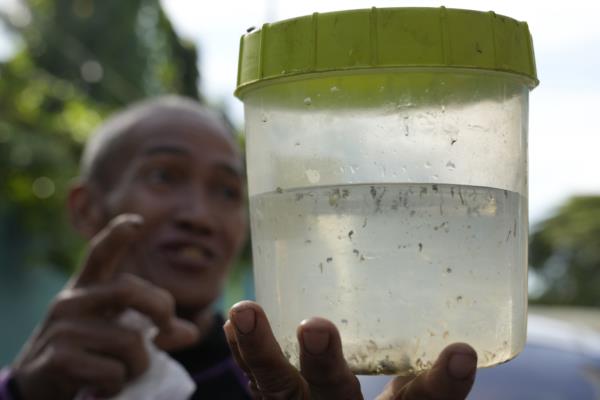
A village in Mandaluyong City, Philippines, has taken an innovative approach to fight against the recent surge in dengue cases by offering a token bounty to residents for captured mosquitos - dead or alive. This strategy comes in response to the growing concern following a dengue outbreak declaration in the nearby city of Quezon, where cases have been on the rise.
According to health department statistics, the Philippines has recorded a 40% increase in dengue cases this year compared to the same period last year, with at least 28,234 cases reported up to Feb. 1. The outbreak in Quezon City, which led to 10 deaths out of 1,769 infected residents, prompted the village of Addition Hills to intensify its efforts in combating the disease.
With a population of over 100,000 residents living in densely populated areas, Addition Hills has already implemented various measures such as clean-ups, canal de-clogging, and hygiene campaigns. However, the recent spike in cases, including the deaths of two young students, prompted village leader Carlito Cernal to introduce the mosquito bounty program.
Residents are encouraged to submit mosquitos or mosquito larvae in exchange for a reward of one Philippines peso for every five specimens turned in. While some critics have raised concerns about potential misuse of the program, Cernal assured that it would be terminated once the situation improves.











As the campaign kicked off, several residents participated in the initiative, with one scavenger receiving a reward for turning in mosquito larvae. Dengue, a viral infection prevalent in tropical regions, can lead to various symptoms ranging from joint pain to organ failure in severe cases.
Health officials emphasize the importance of eliminating mosquito breeding sites and seeking immediate medical attention for suspected cases. Despite the challenges posed by climate change and unexpected surges in dengue cases, the Philippines has managed to maintain relatively low mortality rates associated with the illness.
Efforts to combat dengue continue in various parts of the country, with some areas exploring unconventional methods such as releasing frogs to control mosquito populations. With the rainy season approaching, health authorities stress the need for proactive measures to prevent further spread of the disease.







